Skills Enhancement for Dairy Value Chain Actors to Increase the Quality and Safety of Milk in Rwanda
One of the objectives of the project “Impact of Traditional Practice on the Quality and Safety of Post-Production Handling in the Milk Value-Chain in Rwanda” is to develop an intervention mechanism to reduce postproduction losses in the Rwandan milk value chain. The project is currently being implemented in Rwanda by Alabama A&M University (AAMU) in collaboration with the University of Rwanda (UR), the University of Global Health Equity (UGHE), and translation partnership with the Rwanda Agriculture, Animal Resources Development Board (RAB). USAID funds the project through LASER (Long-term Assistance and Services for Research), PULSE (Partners for University-Led Solutions Engine) programs.
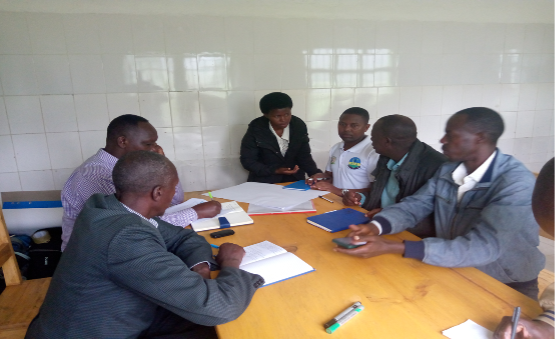
The translation partner (RAB) organized a three-day peer-to-peer pilot training session from the 14th to the 16th of November 2023. The goal of the workshop was to train the milk value chain actors (dairy farmers, milk transporters, and milk collection center’s staff (in charge of milk reception and quality testing)) in Gishwati (one of the largest Rwandan milk shed specialized in pasture grazing) on best practices in hygienic milk handling and quality testing. A total of 40 dairy actors from 10 dairy farmers’ cooperatives in the Gishwati milk shed participated in the training as shown in Figures 1 to 4. The training outcome was for the participant to develop basic skills to enhance milk quality and safety from the farm to the milk collection center. The milk collection center staff was also trained on appropriate techniques for testing milk quality and safety.
To sustain the capacity building of dairy value chain actors in Rwanda, the project designed a training curriculum with appropriate information to help dairy farmers, milk transporters and milk collection center operators to enhance the quality of milk. The proposed training curriculum covers various topics including but not limited to dairy cattle husbandry practices, hygienic milk handling practices, and appropriate techniques for milk quality and safety testing.
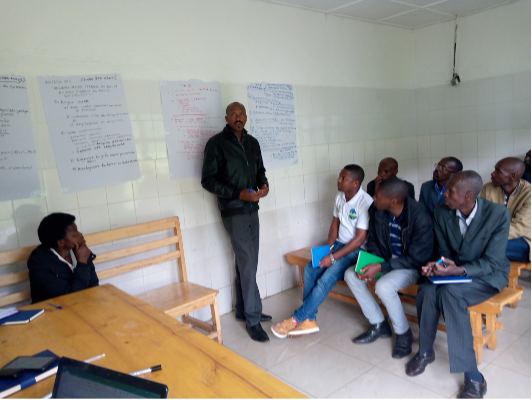
A draft training curriculum was developed for the Rwanda milk value chain, hence a workshop was organized to validate the draft curriculum at the RAB from 20th to 24th November 2023. The goal of the validation workshop was to assess the alignment of the draft curriculum to the national need for the milk quality and safety system in Rwanda and thus address the challenges currently faced by dairy value chain actors in Rwanda.
The validation team was composed of relevant stakeholders of the Rwandan dairy value chain namely representatives from the dairy farmers, milk collection centers, dairy processing plants, Rwandan regulatory authorities about the dairy value chain namely the Rwanda Standards Board (RSB), Rwanda Inspectorate, Competition and Consumer Protection Authority (RICA), Rwanda Agriculture and Animal Resources Development Board (RAB) and researchers from University of Rwanda (Figure 5 to 7). Professor Lamin Kassama, the project Principal Investigator from AAMU, USA officiated the validation workshop (Figure 5).
The pilot training session conducted in the Gishwati milk shed was found to be very successful, hence it will be replicated in other milk sheds to enhance the capacity of dairy value chain actors. The validated training curriculum is expected to significantly help develop a national training manual and a certification program. Furthermore, the training manual will serve as a national training resource for the dissemination of appropriate knowledge and skills needed by dairy value chain actors in Rwanda to ensure quality and safety.
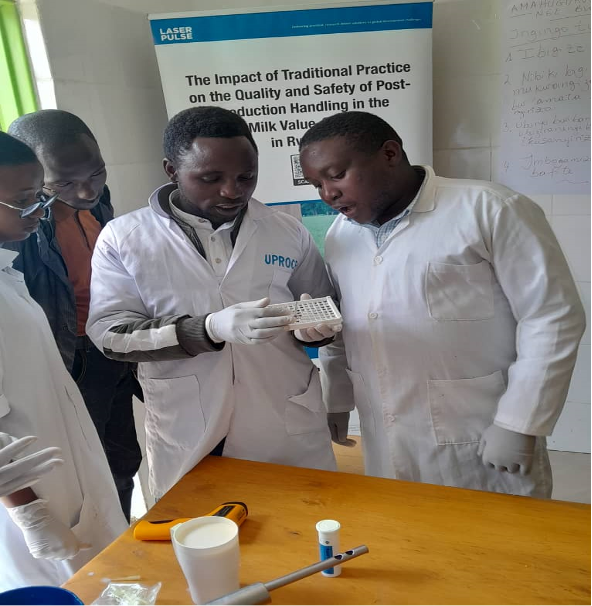
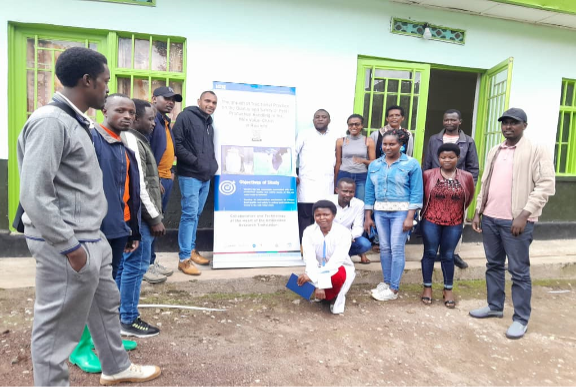
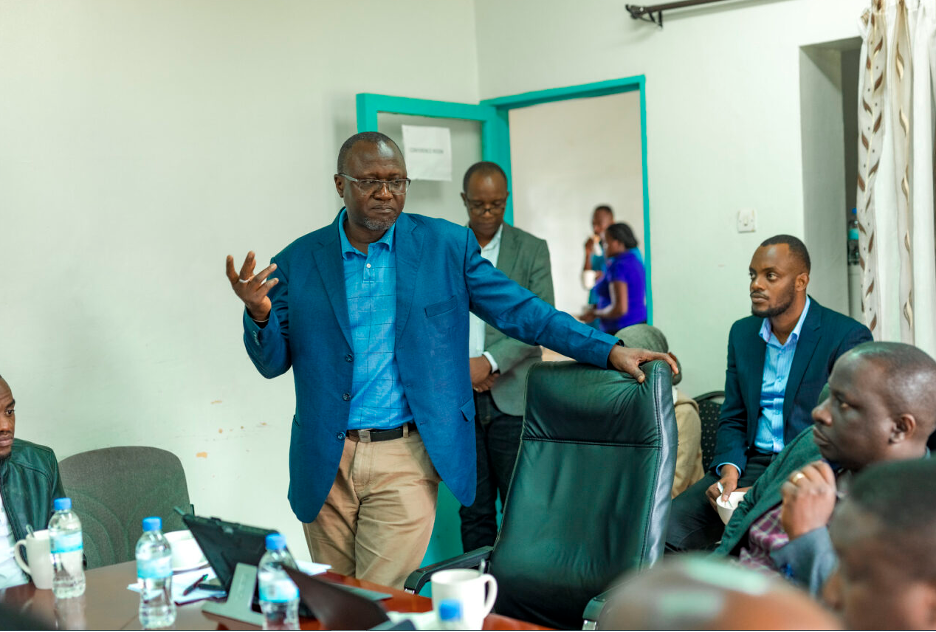
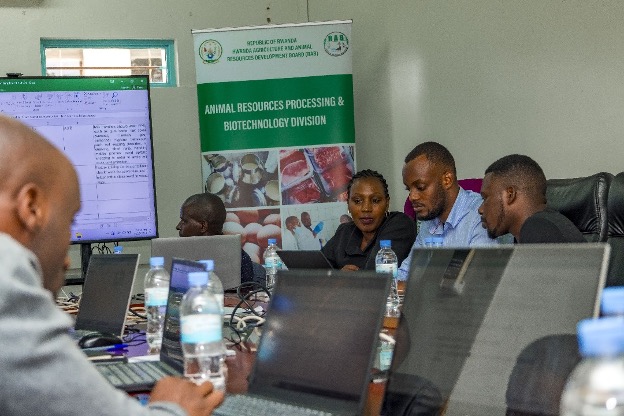
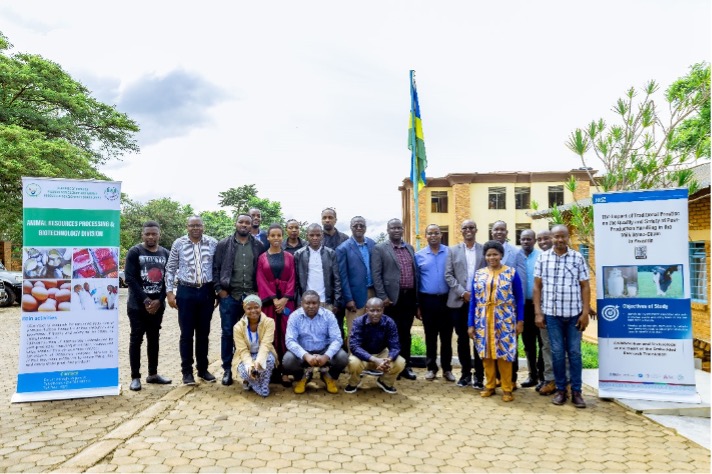
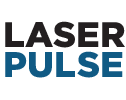
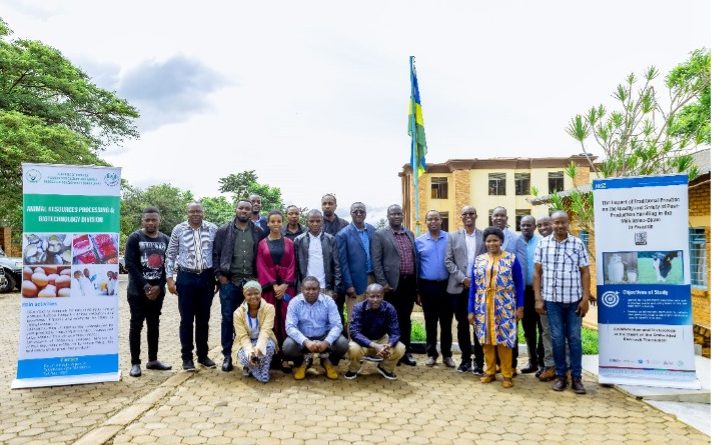

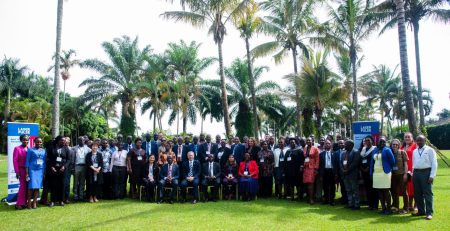
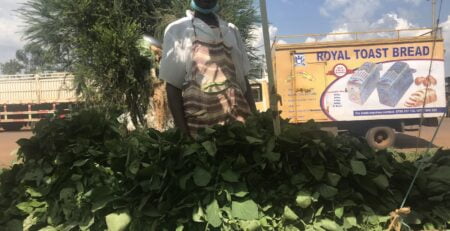
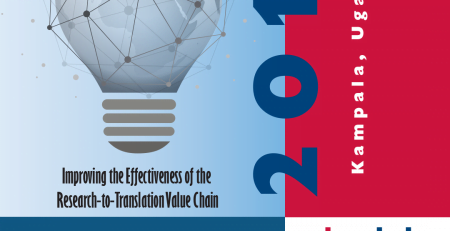
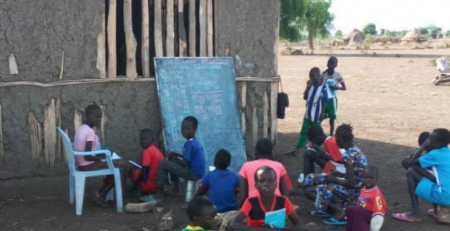
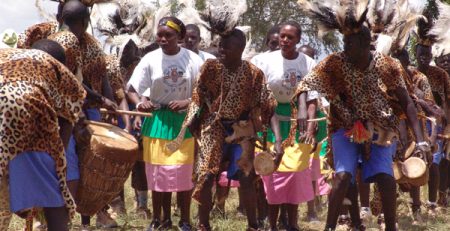
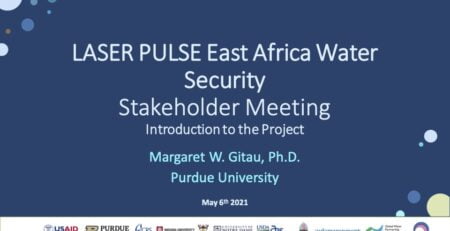
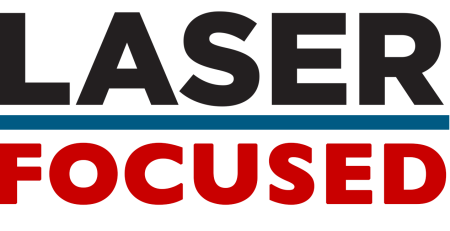
Leave a Reply
You must be logged in to post a comment.